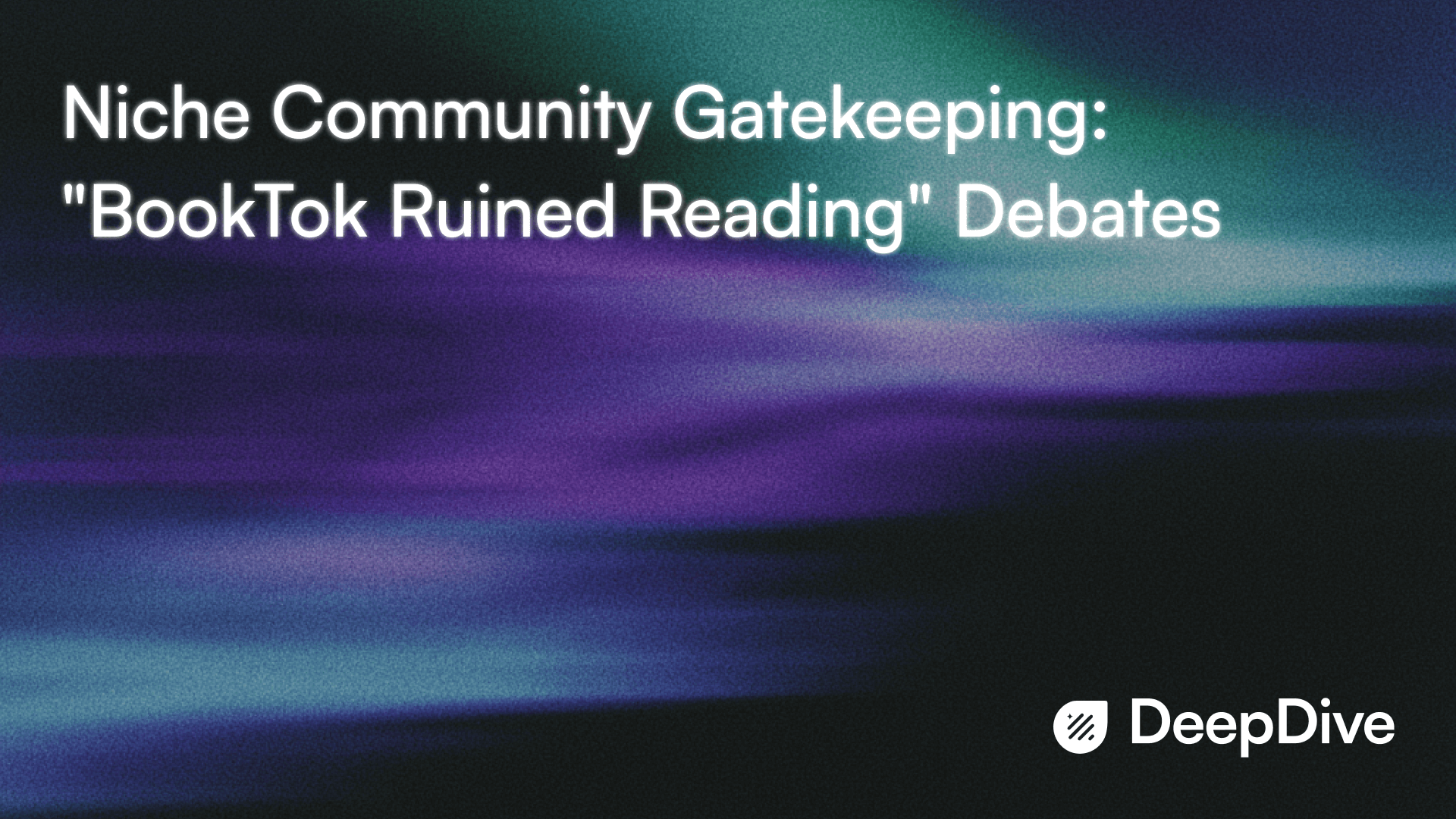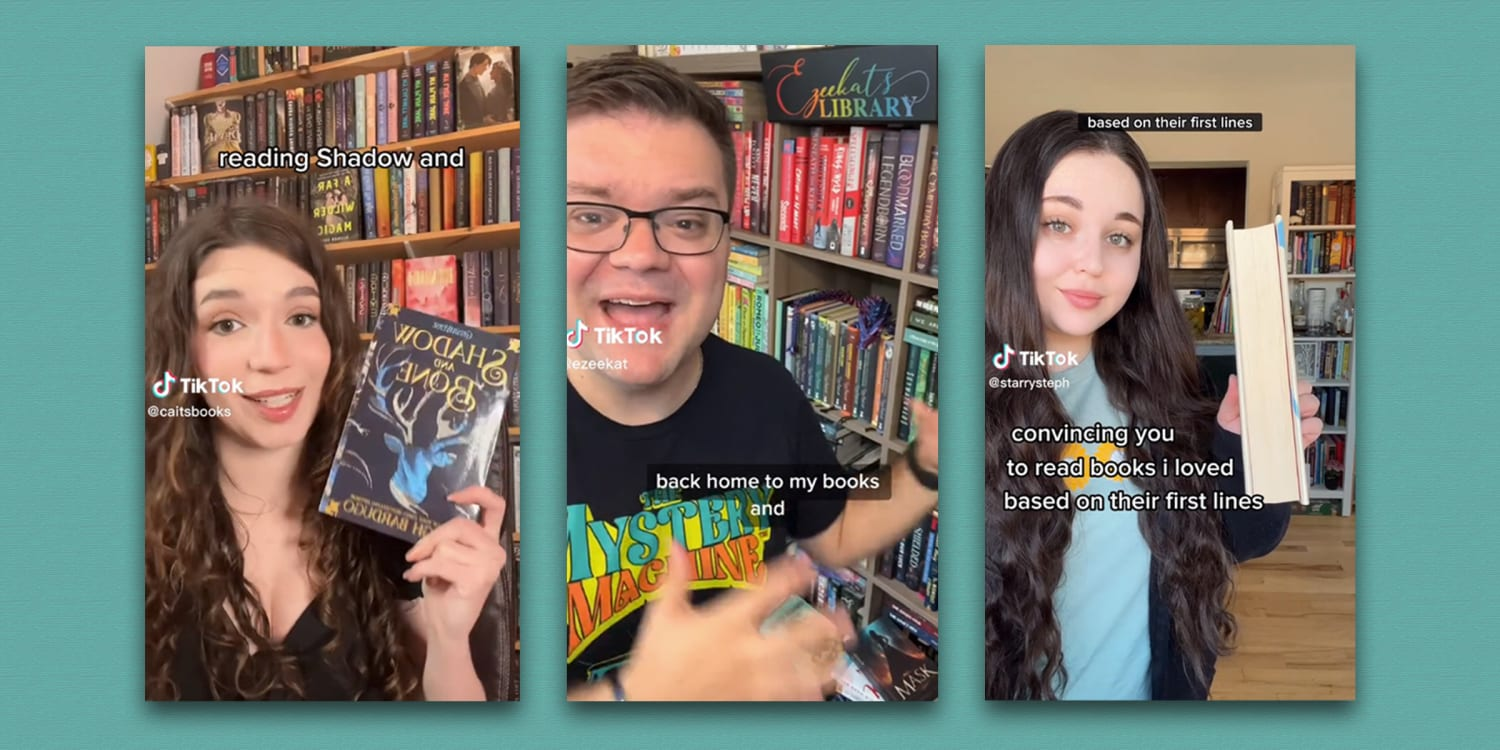We are excited to announce our $2M seed round led by Joa Capital.
Read Now

November 4, 2025
Fabiana Binte Mesbah
When TikTok’s BookTok community first began trending, it felt like a revolution. Millions of young readers were talking about books again — weeping over plot twists, swapping annotated copies, and creating cinematic book montages that made literature feel alive. But a few years and billions of views later, a backlash has emerged: “BookTok ruined reading.”
It’s not just a complaint about algorithms or hype cycles. It’s a story about what happens when niche communities built on passion and identity become too big, and too commercial, for their own comfort.

BookTok was once a small corner of the internet where readers connected over shared emotions, under-the-radar titles, and authentic recommendations. But as the community grew, the TikTok algorithm began shaping what reading looked like online.
Publishers took notice — commissioning influencer partnerships, flooding bookstores with “As Seen on BookTok” tables, and redesigning covers to fit viral aesthetics. Suddenly, reading wasn’t just a personal act; it was a performance.
Readers started asking: Are we reading because we love books, or because the algorithm told us to?
At the heart of the debate is an identity crisis between readers who see BookTok as a force for good, and those who feel it’s turned reading into fast fashion.
The optimists argue that BookTok democratized literature. It put diverse authors in the spotlight, revived backlist titles, and made reading accessible to a generation raised on short-form media. “I’m reading again because of BookTok,” many users claim, and that’s no small feat in an era of shrinking attention spans.

The critics argue that virality flattened literature into aesthetics. They mourn a time when discussions centered on ideas and craftsmanship, not tropes and sprayed-edge editions. What was once a culture of shared discovery became, in their eyes, a cycle of emotional clickbait built on tears, tropes, and trending titles.
This “you ruined it” narrative isn’t unique to reading. The same pattern repeats across subcultures whenever a once-exclusive community becomes popular:
In every case, gatekeeping becomes a defensive reflex: a way to preserve identity against what feels like commodification.
Gatekeeping often gets dismissed as elitism, but it’s more complex than that. Communities form around shared language, values, and rituals — symbols that define who belongs. When a wave of outsiders enters, often driven by viral exposure, those markers of belonging blur.
And that’s when insiders fear losing ownership of the culture they built. They may use gatekeeping (through tone policing, jargon, or authenticity tests) to reclaim control. It’s less about exclusion for its own sake and more about protecting identity in a rapidly commodified digital space.
In digital culture, authenticity has become both priceless and performative. Every platform rewards “realness,” but what counts as authentic depends on who’s watching. BookTok’s initial charm came from that illusion of intimacy, from seeing real readers react emotionally, unfiltered.
But once brands, publishers, and influencers learned how to manufacture “authentic” reactions, audiences began to feel the simulation. The same authenticity that built trust began to feel rehearsed.
The lesson? Authenticity cannot be outsourced. It has to be earned through consistent participation and respect for community norms.
Pro tip: You may find it useful to learn more about building a brand community.

For marketers, BookTok’s evolution is both a warning and an opportunity. Communities can grow powerful enough to drive entire industries — BookTok encouraged more than 52 million user creations. But entering those spaces without understanding their culture can trigger backlash faster than any ad campaign.
Here are three lessons brands can take away:
BookTok, like many digital subcultures, is a victim of its own success. Its rise brought reading into mainstream youth culture — a cultural win by any measure. But in doing so, it also exposed how fragile online authenticity can be.
Once a community’s identity becomes a brand asset, the lines between passion and promotion blur. Growth turns from liberation into constraint. The moment people start saying “BookTok ruined reading” is the moment a subculture realizes it has become an industry.
The BookTok debate isn’t really about reading. It’s about ownership. Who controls culture when everyone has a platform? For brands, the takeaway is clear:
In the end, communities don’t die when they grow — they die when they stop feeling like communities. The challenge for marketers in the age of BookTok is not to resist the algorithm, but to build authenticity that outlasts it.
To truly understand when a community shifts from passion to performance, marketers can use social listening tools like DeepDive to track sentiment, trends, and authenticity in real time.
Discover How Audience Intelligence can help your brand grow